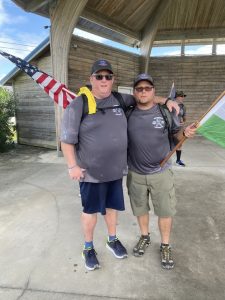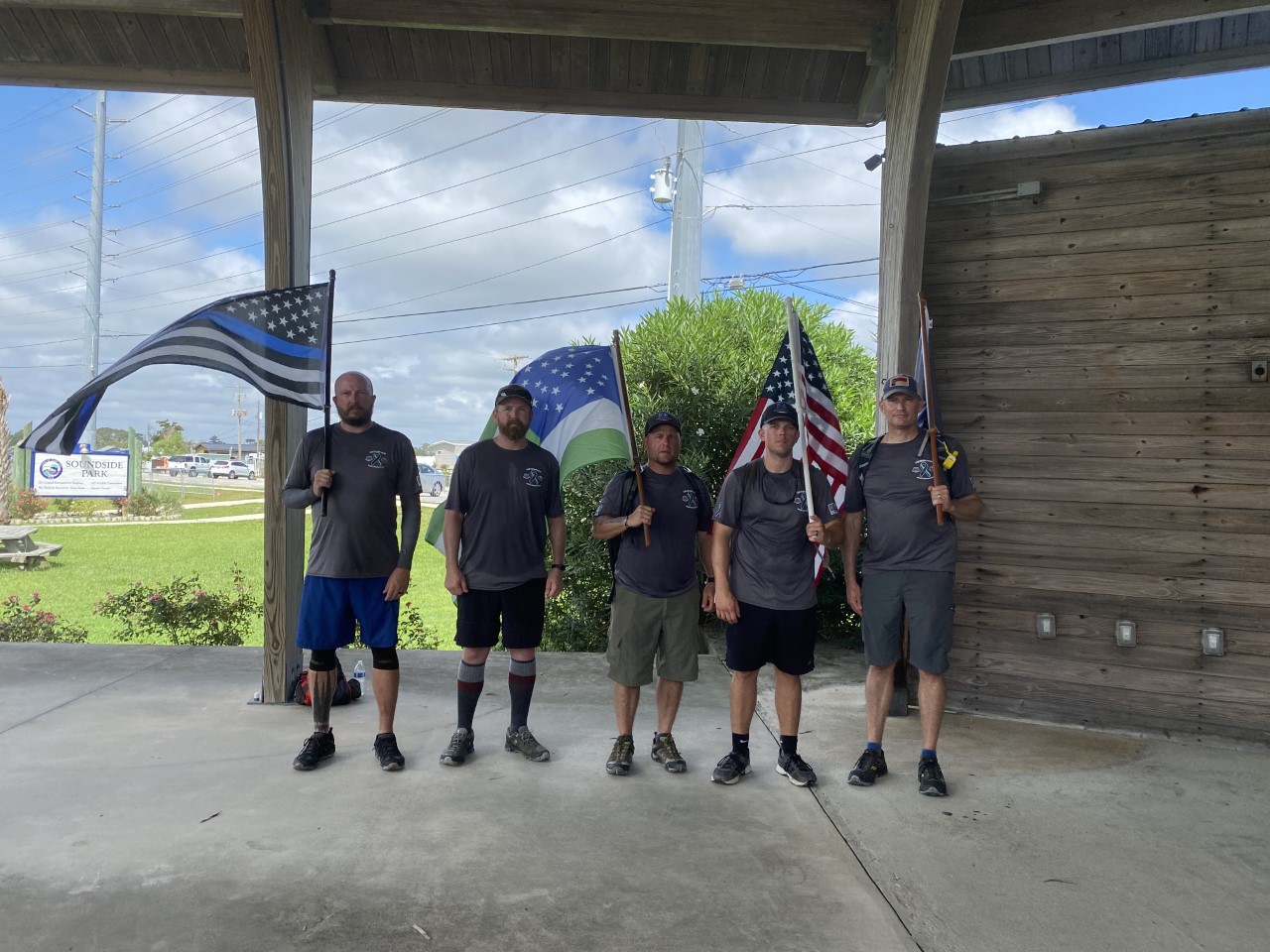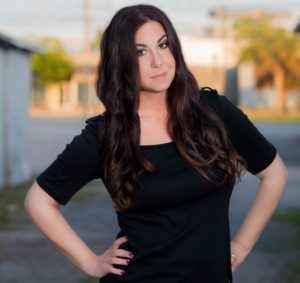By Tracy Beanz and Sharon Black
Police officers across the country have been under daily attack as of late, physically by rioters in streets, in print, by the press, and by local politicians and city councils who are pushing to defund police departments. These policies are tying the hands of officers as they work to protect their communities.
Police officers put their lives on the line every day to protect and serve our communities and keep our streets safe. Just this weekend, two officers in Los Angeles were brutally shot as they sat in their squad cars. As they were rushed to the hospital, groups of "protestors" blocked the entrance where the ambulance was headed, chanting "We hope they die". Much attention is given to activists draped in the shroud of Marxism chanting "Black Lives Matter", and little is given to honor our brave heroes, who in many cases, sacrifice everything to ensure we can live in safe neighborhoods.
And that isn't all; far too few know about the mental toll the job takes on those who wear the uniform. The brutal reality of what they see day in and day out can only be described as horrific. And it’s not hard to imagine that they carry their job, and its burden, home with them.
 Keith McGurk - Retired NYPD Police Office, President of Smoking Shields South Carolina
Keith McGurk - Retired NYPD Police Office, President of Smoking Shields South Carolina
Mark Lobel - Retired NYPD Detective, Currently Detective Sgt. Pender County, NC - Sheriffs Dept. (President of Smoking Shields North Carolina)
Keith McGurk is a former NYPD officer who has had his own experience with the mental hardships of being on the job. Speaking to UncoverDC, he thinks back to the day he decided he could no longer carry on. In 2009, he was a beat cop in Brownsville, Brooklyn working on a midnight Impact Robbery Squad trying to thwart a tough robbery pattern that kept happening in the area. It was a mile and quarter of just absolute hell. "We used to call it a self-cleaning oven.", Keith said. "Not once did we see protests or marches or calls for stopping the violence. These children with guns would exterminate each other just for wearing the wrong color or standing on the wrong sidewalk."
Keith remembers one arrest of a teenager for possession of narcotics, who was sitting in the back of the police van on the way to the police station. The teenager said “My life is over” and Keith said, “You have no idea how wrong you are. All it takes is a decision to change and anything is possible.” He recounts that he realized at that moment that even though he was giving advice to that troubled teen, in reality, he was talking to himself.
He was in a child custody battle over his daughter that was especially hard. Fathers have an uphill battle trying to get full-time custody of a child. He had just broken up with his then-girlfriend, and he was going to work every day to make sure he had money to pay for the attorney, keep a roof over their heads, and food on the table. He was working all the overtime he could just to make ends meet. At the time, he lived 40 minutes from his precinct which made his 8 ½ hour workday possibly 11 or 12 hours with commute and overtime. The arrest of that teenager seemed to put things back into focus for Keith.
After visiting doctors during this time for prescriptions to help cope with the stress of life, depression, and the stress of the job, he found little relief. Nothing seemed to work. The breaking point came when he received a text message from his ex-girlfriend that said, “You’re unfixable”. That was on November 24, 2009. What happened next changed his life forever.
He dropped his daughter off at school that morning, then proceeded to drink himself into a blackout. By 8:30 AM, he was extremely intoxicated. He had left a couple of suicide notes on his ex-girlfriend’s car and he went for a drive. Thinking back today, Keith said he is unclear about how he intended to kill himself. He had a loaded 9mm on the passenger seat of his car, but he didn’t really have a plan. He recalled that he felt resigned to the fact that he was done fighting. Much of the experience is still fuzzy to him, but he does remember bits and pieces of the day.
Keith got in his car and started traveling south on I-95. At about 8:00 that evening he received a call on his cellphone from a 646 area code, and he knew it was the NYPD calling. Lt. Jack Cambria was on the other end of the call, the Commanding Officer of the Hostage Negotiation Team. Keith now refers to Lt. Cambria as an “Angel”.
By the time Keith realized what was going on there was a police helicopter hovering over the stretch of highway where he was located, heading south on the interstate towards South Carolina. Officers had called a 1013, which is the NYPD code for an officer in trouble. Lt. Cambria told Keith that there was a better way, and he could get the help that he needed. "Lt. Cambria just took the time to listen to me. For the first time in my career, I felt that someone had my back.", Keith told us.
 Lt. Jack Cambria and Keith McGurk
Lt. Jack Cambria and Keith McGurk
After speaking to his "angel" for a while, Keith realized that ending his life was not the answer. "I remember him requesting that I take my gun apart and put it in the trunk of my car. I immediately pulled over, grabbed the gun, and dismantled it." While he was securing the gun in the trunk, Keith heard the sound of an 18 wheeler tractor-trailer hitting the rumble strips. He looked up to see it headed straight for him. At that moment, Keith remembers thinking “I don’t want to die”. He said, "I had just finished working through all of this with Lt. Cambria, getting through things for the first time and making the decision life is worth living, and I pull over to make things right, and I think to myself, now I am going to die because this semi hits me?" The truck veered back on to the highway just in time to avoid hitting him.
The next few years would be the path to recovery, but it wouldn't be easy. Keith drove back up to New York and met with Lt. Cambria and other senior officers from his precinct. Lt. Cambria suggested he turn himself in at another precinct so that he wouldn’t have to face the officers he worked with every day. By this time they all knew what had happened.
Keith declined that offer, and said, “Well, maybe if they knew sooner, then this wouldn’t have happened”. He remembers thinking, "I didn't trust my brothers and sisters in law enforcement enough to confide in them what I was going through and it almost cost me my life". As hard as all of it was, there is a happy ending to this story. He decided to check in to a rehab facility. He returned home and needed to hug his young daughter goodbye.
“I think back to that day, sitting here on the front porch of my house and I hear my kids inside the house and I realize if I would’ve carried through with what I was going to do that day, none of this would’ve happened. A life beyond my wildest dreams would’ve never been experienced. Three lives would’ve never been brought into this world.”
Keith has now dedicated his life to helping officers going through those same issues. He works with them to get the help they need to overcome the hardship and obstacles all too familiar to law enforcement. As he puts it, [suicide] “is a permanent solution to a temporary problem. A couple of years ago there was almost an epidemic of law enforcement suicides.”
Now, he is President of the Smoking Shields of South Carolina, a cigar-smoking club for law enforcement and military that has chapters all over the country. They've partnered with the Honor Foundation to do a Hike called "Survive the 55" to bring awareness to law enforcement suicide. An important part of the mission is to remove the stigma associated with depression and mental health issues in the Law Enforcement community. Keith says "The stigma of being inferior is what keeps men and women on the blue line from seeking out help. I'm living proof that it is OK to confide in your brothers and sisters, and they can help".
 Right to Left: Jeremy Grimes, Kevin Whitley, Mark Lobel, Jeff Paul, and Dustin Friesen
Right to Left: Jeremy Grimes, Kevin Whitley, Mark Lobel, Jeff Paul, and Dustin Friesen
"Survive the 55" is significantly named because every 55 hours a member of law enforcement commits suicide. They do a mile hike for every one of the 55 hours.
 On Friday, the Foundation started this important journey. This September 11th through the 13th members of both organizations hiked 55 miles down the beachfront of Topsail Island, NC to generate awareness and spread a message of hope. Why 55 Miles and a Beach? The primary mission is to build awareness and spread a message of hope to all Law Enforcement Officers. The 55 miles represents the average number of hours that elapsed between Law Enforcement Officers’ suicides. The selection of the beachfront of Topsail Island, NC acts as a metaphor. The beachfront appears relaxing and peaceful, a place that many go for vacation, but it's constantly changing conditions, high temperatures, high winds, and grueling sand will create the metaphor of the struggle some Law Enforcement Officers face.
On Friday, the Foundation started this important journey. This September 11th through the 13th members of both organizations hiked 55 miles down the beachfront of Topsail Island, NC to generate awareness and spread a message of hope. Why 55 Miles and a Beach? The primary mission is to build awareness and spread a message of hope to all Law Enforcement Officers. The 55 miles represents the average number of hours that elapsed between Law Enforcement Officers’ suicides. The selection of the beachfront of Topsail Island, NC acts as a metaphor. The beachfront appears relaxing and peaceful, a place that many go for vacation, but it's constantly changing conditions, high temperatures, high winds, and grueling sand will create the metaphor of the struggle some Law Enforcement Officers face.
We asked Keith how the NYPD knew to come looking for him. He told us "Remember that girlfriend, who texted me I was unfixable? She called the police when she saw the notes on her car. She saved my life." In the end, Keith married that ex-girlfriend. They are extremely happy, and the parents of three more beautiful children, proving that life really is worth living.


If you, or another Law Enforcement officer is struggling with depression, alcoholism, drug abuse, or thoughts of self-harm, there are resources available that can help. Please see the links below for more information.
Tracy Beanz is the Founder and Editor in Chief at UncoverDC. You can follow her on Twitter @TracyBeanz



